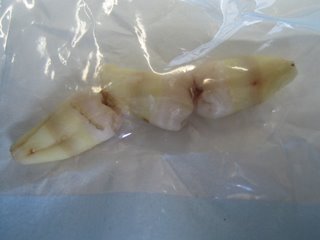What makes a good PhD student?
Nature artikel mit tipps fuer erfolgreiche doktoranden. weiss gar nicht was ich dazu meinen soll....vor allem der punkt mit work hard, gibt mir schon ein wenig zu denken.
Choose a supervisor whose work you admire and who is well supported by grants and departmental infrastructure.
Take responsibility for your project.
Work hard — long days all week and part of most weekends. If research is your passion this should be easy, and if it isn't, you are probably in the wrong field. Note who goes home with a full briefcase to work on at the end of the day. This is a cause of success, not a consequence.
Take some weekends off, and decent holidays, so you don't burn out.
Read the literature in your immediate area, both current and past, and around it. You can't possibly make an original contribution to the literature unless you know what is already there.
Plan your days and weeks carefully to dovetail experiments so that you have a minimum amount of downtime.
Keep a good lab book and write it up every day.
Be creative. Think about what you are doing and why, and look for better ways to go. Don't see your PhD as just a road map laid out by your supervisor.
Develop good writing skills: they will make your scientific career immeasurably easier.
To be successful you must be at least four of the following: smart, motivated, creative, hard-working, skilful and lucky. You can't depend on luck, so you had better focus on the others!
Georgia Chenevix-Trench; Nature 441, 252 (May 2006) | doi:10.1038/nj7090-252b
Choose a supervisor whose work you admire and who is well supported by grants and departmental infrastructure.
Take responsibility for your project.
Work hard — long days all week and part of most weekends. If research is your passion this should be easy, and if it isn't, you are probably in the wrong field. Note who goes home with a full briefcase to work on at the end of the day. This is a cause of success, not a consequence.
Take some weekends off, and decent holidays, so you don't burn out.
Read the literature in your immediate area, both current and past, and around it. You can't possibly make an original contribution to the literature unless you know what is already there.
Plan your days and weeks carefully to dovetail experiments so that you have a minimum amount of downtime.
Keep a good lab book and write it up every day.
Be creative. Think about what you are doing and why, and look for better ways to go. Don't see your PhD as just a road map laid out by your supervisor.
Develop good writing skills: they will make your scientific career immeasurably easier.
To be successful you must be at least four of the following: smart, motivated, creative, hard-working, skilful and lucky. You can't depend on luck, so you had better focus on the others!
Georgia Chenevix-Trench; Nature 441, 252 (May 2006) | doi:10.1038/nj7090-252b


